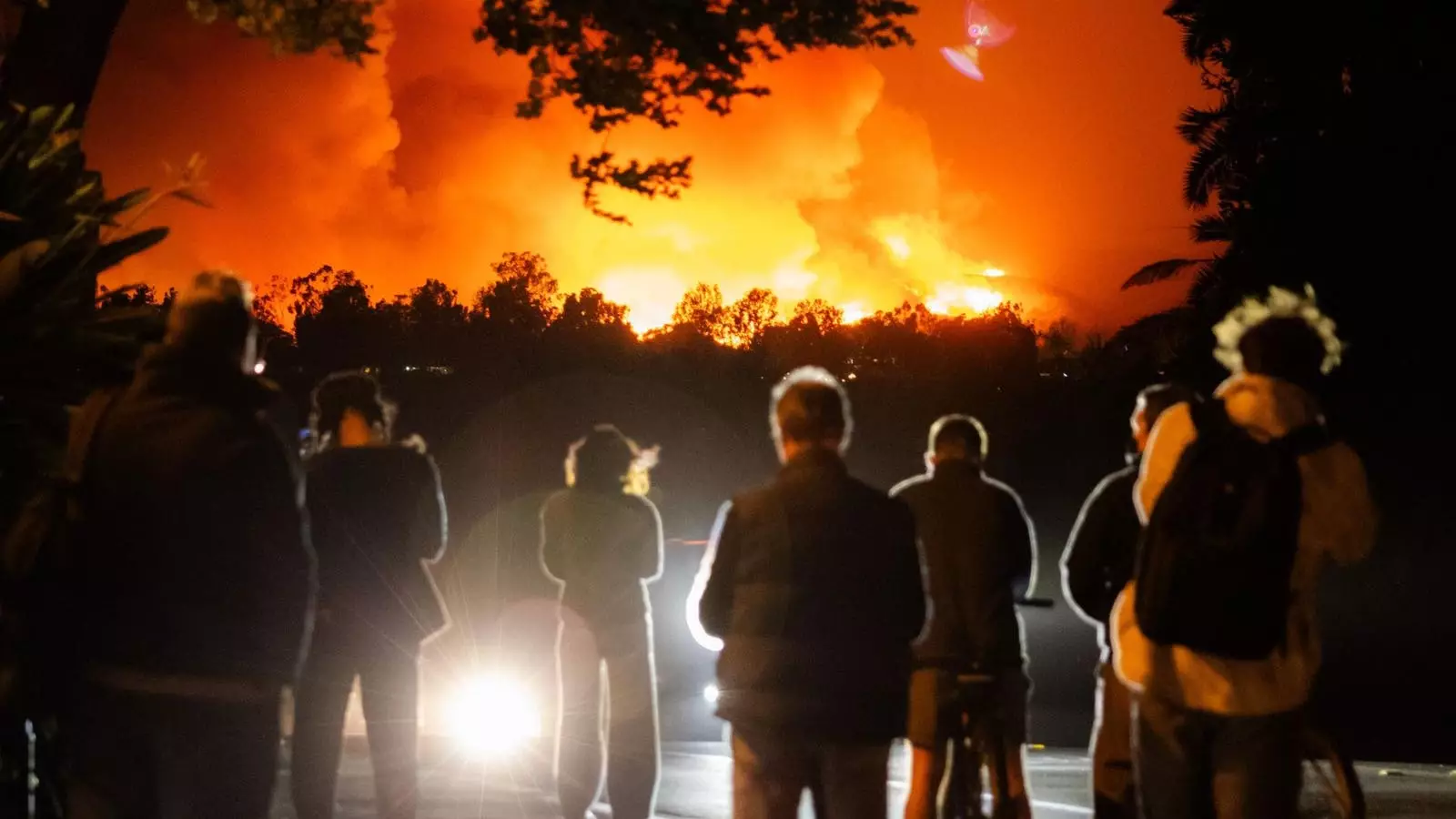As we usher in a new year, the beginning of 2025 for Southern California is marked by an unsettling spectacle—wildfires ravaging the landscape. These catastrophic events starkly highlight the growing urgency of climate change, an issue that transcends personal aspirations and resolutions. The situation remains grave, echoing a reality far removed from our hopes for a fresh start. The sheer speed at which these climatic changes manifest challenges our understanding of environmental cycles; wildfires, although part of a natural ecosystem, have taken on an alarming frequency and intensity.
While wildfires are integral to ecological rejuvenation during specific seasons, the winter fires engulfing Southern California signal a disturbing trend in climate behavior. The fires serve not just as destructive phenomena, but as bellwethers for a changing climate that is becoming increasingly unpredictable. Scientists have long warned of intensified weather patterns and the resulting ecological consequences. As a long-time admirer of Los Angeles from my home in New York, it is disheartening to see the city I love grappling with such adversity. The personal loss and collective grief experienced by the community are palpable, serving as a reminder that such events can shatter lives and livelihoods within moments.
Against this backdrop of devastation, however, there are poignant displays of resilience and unity. In the face of disaster, communities are coming together in profound ways. Neighbors extend a helping hand to those affected, and chefs rally to nourish the unhoused, showcasing the human capacity for compassion in times of crisis. This spirit of community underscores a vital truth: amidst deprivation and uncertainty, local support systems can provide a lifeline. Initiatives such as community food drives and mutual aid networks exemplify the power of grassroots efforts to mitigate some of the immediate impacts of these fires.
If you’re feeling moved by the unfolding crisis, it’s critical to channel that empathy into tangible support. Consider contributing to local organizations spearheading relief efforts, such as World Central Kitchen and emergency networks like Project Angel Food. Your donations could offer crucial assistance to first responders and those directly affected by the fires. Engaging with such initiatives not only assists in alleviating immediate needs but also fosters a sense of connection and responsibility within the community.
Additionally, educating ourselves on the broader implications of climate change—including food insecurity exacerbated by these environmental challenges—becomes a necessary aspect of our collective response. By understanding the root causes and symptoms of climate-related issues, we can advocate for sustainable solutions that aim to address these crises on a systemic level.
Looking ahead, it’s vital to remain engaged with the conversation surrounding food and climate justice. For those interested in exploring these topics further, participating in discussions through events, forums, or reading materials can enrich our understanding and drive collective action. Authors and activists often lead the charge in unveiling the interconnectedness of environmental degradation, food systems, and socioeconomic disparities. By joining such dialogues, we empower ourselves to be part of the solution in confronting the adversities posed by climate change.
As we navigate the complexities of 2025, it is imperative to remain vigilant and proactive in our response to climate change. The devastation wrought by fires in Southern California should serve not only as a cautionary tale but also as a rallying point for community solidarity and action. While the struggle ahead may feel daunting, it is through collective resilience, compassion, and a commitment to change that we can foster hope and create a better future. We must recognize that the journey to recovery and adaptation begins with awareness, empathy, and sustained effort from each of us.


Leave a Reply